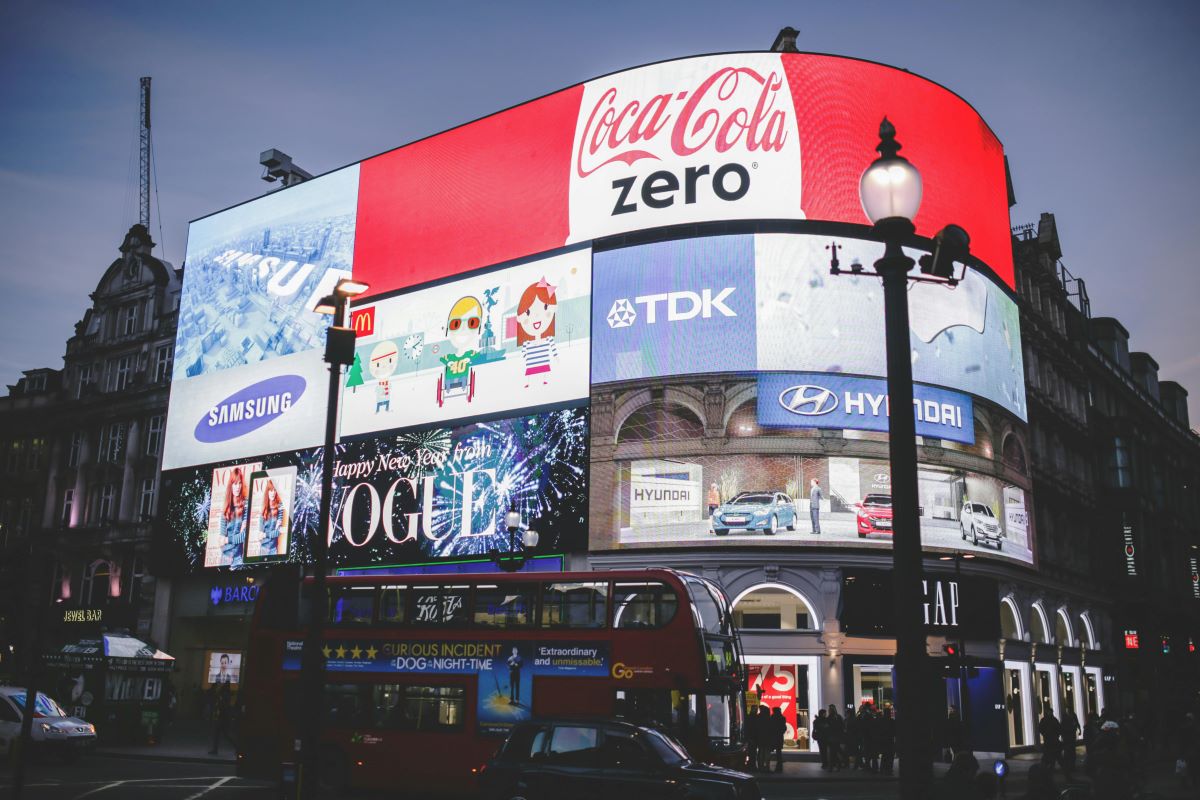

What is ROI in Marketing and How to Measure It: A Specialist’s Guide
Tips for Productivity Oct 19, 2024 • 8 min read
Words by -
Understanding the return on investment (ROI) is crucial for any marketing strategy. As business owners and media professionals strive to maximize their marketing budgets, grasping the nuances of ROI can make all the difference. This guide explores what ROI in marketing entails, how to measure it, and why hiring a marketing specialist can be beneficial.
Understanding ROI in Marketing
What is ROI in Marketing?
ROI in marketing refers to the financial return a company receives from its marketing investments. It is a performance measure used to evaluate the efficiency and profitability of marketing expenditures. Simply put, ROI helps businesses understand whether their marketing efforts are generating more revenue than they cost. It is an essential metric for determining the success of a marketing campaign, as it provides insight into the effectiveness of different strategies and tactics.
The Role of ROI in Marketing Strategy
ROI plays a pivotal role in shaping marketing strategies by offering a clear picture of what works and what doesn't. By analyzing ROI, businesses can allocate their resources more effectively, focusing on high-performing campaigns while discontinuing or adjusting underperforming ones. This data-driven approach enables marketers to make informed decisions, optimize their strategies, and ultimately drive growth.
Key Components of ROI Calculation
Basic ROI Formula
Marketing ROI (Return on Investment) is a crucial metric that helps businesses evaluate the effectiveness of their marketing efforts. It measures the return generated from marketing investments relative to the cost incurred. The formula for calculating Marketing ROI is:
ROI = (Sales growth- Marketing Cost) / Marketing Cost
Breaking Down the Formula
- Sales Growth: This is the increase in sales revenue attributed to a specific marketing campaign or activity.
- Marketing Cost: This includes all expenses related to the marketing campaign, such as advertising costs, promotional materials, labor, and any other associated costs.
Example Calculation
Let's consider a scenario:
- Marketing Campaign Cost: $10,000
- Sales Growth from the Campaign: $30,000
Using the formula:
Calculate Sales Growth - Marketing Cost:
Sales Growth−Marketing Cost=30,000−10,000=20,000
ROI= (10,000 / 20,000) = 2
This means that for every dollar spent on marketing, the business earned $2 in return. To express this as a percentage:
ROI Percentage = 2 × 100 = 200%
In this example, the marketing campaign yielded a 200% ROI, indicating a strong return on the marketing investment. This metric helps businesses assess whether their marketing strategies are effective and informs future marketing decisions.
Metrics to Consider
While the basic ROI formula provides a general overview, it’s important to consider additional metrics for a comprehensive analysis. These include:
- Customer Acquisition Cost (CAC): The cost associated with acquiring a new customer.
- Lifetime Value (LTV): The total revenue a business can expect from a single customer account.
- Conversion Rate: The percentage of users who take a desired action.
- Click-Through Rate (CTR): The ratio of users who click on a specific link to the number of total users who view a page.
By considering these metrics alongside ROI, businesses can gain deeper insights into the effectiveness of their marketing strategies.

Different Methods to Measure ROI
Campaign-Specific ROI Analysis
Campaign-specific ROI analysis involves evaluating the performance of individual marketing campaigns. This method allows marketers to assess the success of specific tactics, such as email marketing or social media ads, by comparing the revenue generated against the costs incurred. By understanding the ROI of each campaign, businesses can fine-tune their strategies to maximize returns.
Multi-Touch Attribution
Multi-touch attribution is a more sophisticated method that considers all touchpoints a consumer interacts with before converting. Unlike single-touch models, which attribute the entire credit to one interaction, multi-touch attribution provides a holistic view of the customer journey. This approach enables businesses to identify which channels and interactions are most effective, thereby optimizing their marketing mix for better ROI.
Tools and Technologies for Measuring ROI
Analytics Tools
Analytics tools, such as Google Analytics, provide valuable insights into website traffic, user behavior, and conversion rates. By tracking these metrics, businesses can gauge the effectiveness of their marketing efforts and identify areas for improvement. Advanced analytics platforms offer features like real-time data visualization and predictive analytics, helping marketers make data-driven decisions to enhance ROI.
CRM and Marketing Automation
Customer Relationship Management (CRM) systems and marketing automation tools streamline the process of tracking and measuring ROI. These technologies enable businesses to manage customer interactions, automate marketing tasks, and analyze data across multiple channels. By leveraging CRM and marketing automation, companies can gain a comprehensive view of their marketing performance and optimize strategies for maximum ROI.
Challenges in Measuring ROI
Common Pitfalls
Measuring ROI in marketing is not without its challenges. Common pitfalls include failing to account for all expenses, overlooking long-term benefits, and relying on inaccurate data. To avoid these issues, businesses must ensure they have a clear understanding of all costs involved and use reliable data sources for their calculations.
Dealing with Intangible Benefits
Another challenge is accounting for intangible benefits, such as brand awareness and customer loyalty. While these factors may not directly translate into immediate revenue, they play a crucial role in long-term business success. To address this, businesses should consider using proxy metrics, such as social media engagement and customer satisfaction scores, to gauge the impact of intangible benefits on ROI.
Best Practices for Maximizing ROI

Setting Clear Goals and KPIs
One of the most effective ways to maximize ROI is by setting clear goals and key performance indicators (KPIs). By defining specific, measurable objectives, businesses can align their marketing efforts with overall business goals and track progress over time. This clarity ensures that marketing strategies are focused and results-oriented, leading to higher ROI.
Continuous Optimization
Continuous optimization is key to sustaining high ROI in marketing. Regularly reviewing and adjusting marketing strategies based on performance data allows businesses to stay agile and responsive to changing market conditions. By embracing a culture of experimentation and learning, companies can identify new opportunities for growth and drive better results.
Why Hire a Marketing Specialist to Get ROI in Marketing?
Hiring a marketing specialist can significantly enhance a business's ability to achieve high ROI. Specialists bring a wealth of expertise and experience to the table, enabling them to develop and execute effective marketing strategies. They possess the skills to analyze data, identify trends, and optimize campaigns for maximum impact. Moreover, marketing specialists stay abreast of industry developments and emerging technologies, ensuring that businesses remain competitive in an ever-evolving landscape.
How Rubii Can Help You Hire a Marketing Specialist
Rubii emerges as a premier platform for sourcing exceptional marketing specialists, backed by a vast network of skilled professionals capable of driving innovation and achieving outstanding results. Whether organizations are building teams for specific campaigns or establishing long-term partnerships, Rubii delivers customized solutions tailored to meet their unique marketing objectives.

Talent Acquisition
Rubii excels in talent acquisition by strategically identifying candidates who not only possess the necessary marketing expertise but also thrive in remote work environments. By emphasizing specific criteria tailored for remote roles, Rubii ensures that each candidate is not only qualified but also aligns seamlessly with the culture and dynamics of remote collaboration. This targeted approach minimizes mismatches and enables organizations to assemble adaptable and communicative teams—qualities essential for success in today's marketing arena.
Tailored Solutions for Remove Workforce Needs
Understanding that each organization faces distinct challenges and goals, Rubii offers tailored solutions designed to meet specific client needs. This level of customization streamlines the recruitment process, enhances team cohesion, and fosters successful marketing initiatives.
Comprehensive Performance Management
To uphold high standards in employee performance, Rubii provides comprehensive performance management services that monitor and evaluate the productivity of remote marketing specialists. Through consistent assessments and feedback mechanisms, Rubii ensures that marketers not only meet but exceed expectations. This commitment to fostering growth and accountability creates an environment of continuous development, allowing businesses to confidently trust their remote marketing teams to perform effectively and advance campaigns.
Onboarding
Rubii’s onboarding process is meticulously designed to ensure that new remote hires integrate smoothly into marketing teams. By helping them acclimate to the company’s culture, values, and workflows, the process reduces the time required for new hires to become productive, enhancing overall team performance and cohesion from the outset.
Dedicated Online Support
Recognizing the complexities of remote collaboration, Rubii provides dedicated online support for both employers and marketers. This commitment ensures that any issues or concerns are addressed promptly and effectively, facilitating smooth operations and fostering a positive, productive work environment.
Managing Contracts and Compliance
Navigating the intricacies of remote work contracts and compliance can often overwhelm businesses. Rubii alleviates this burden by expertly managing these complexities, ensuring all legal obligations—such as contracts, tax matters, and labor regulations—are met. This proactive approach reduces risk and provides peace of mind, empowering businesses to concentrate on executing successful marketing initiatives while leveraging Rubii's expertise.
Conclusion
Understanding and measuring ROI in marketing is essential for any business looking to optimize its marketing efforts. By employing various methods and tools, setting clear goals, and continuously refining strategies, companies can maximize their ROI and drive sustainable growth. Hiring a marketing specialist can further enhance these efforts, providing businesses with the insights and expertise needed to succeed in a competitive market. As you navigate the complexities of marketing ROI, remember that a well-informed, strategic approach will yield the best results.
Ready to hire a marketing specialist? Click here to get in touch!

